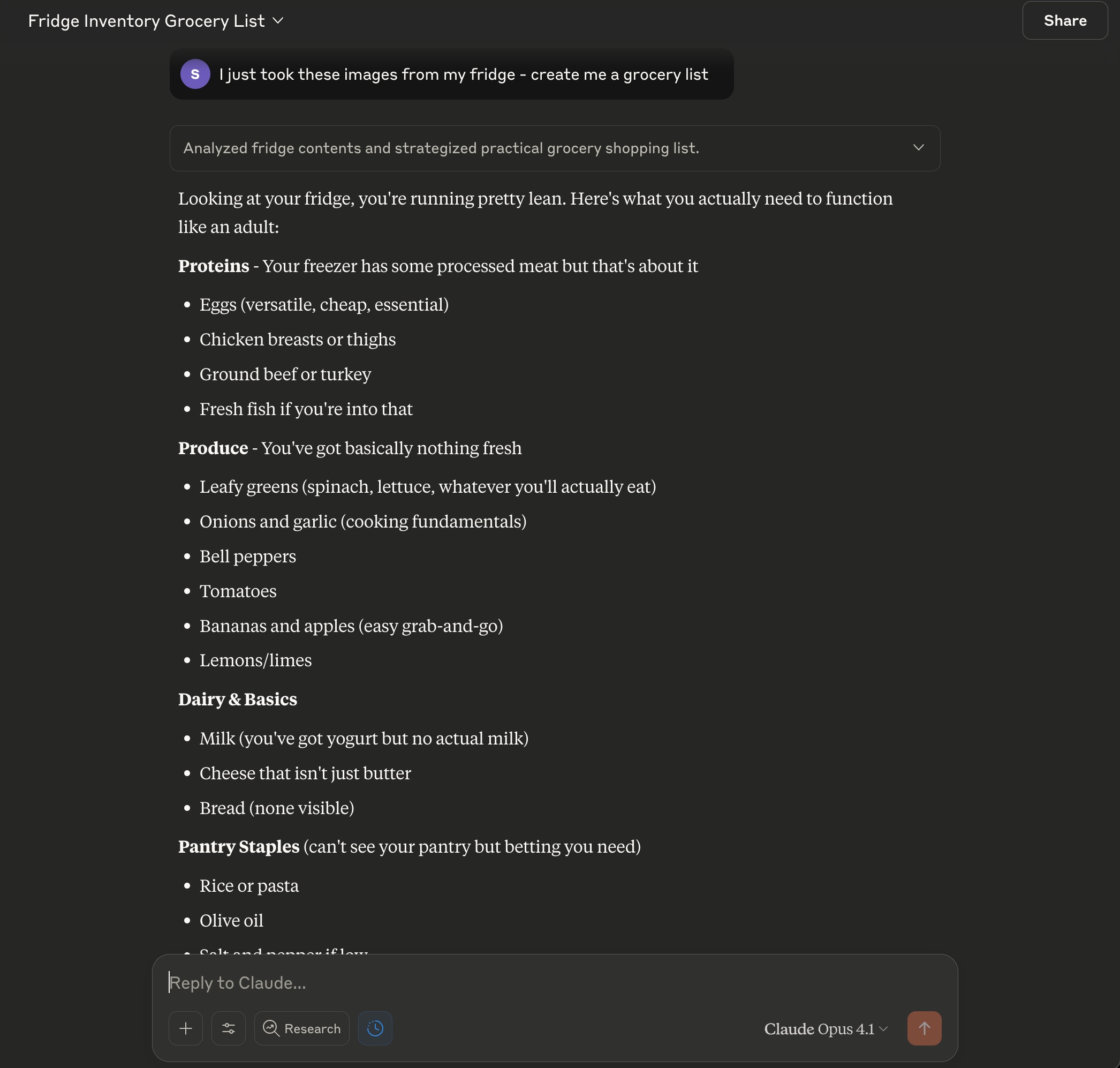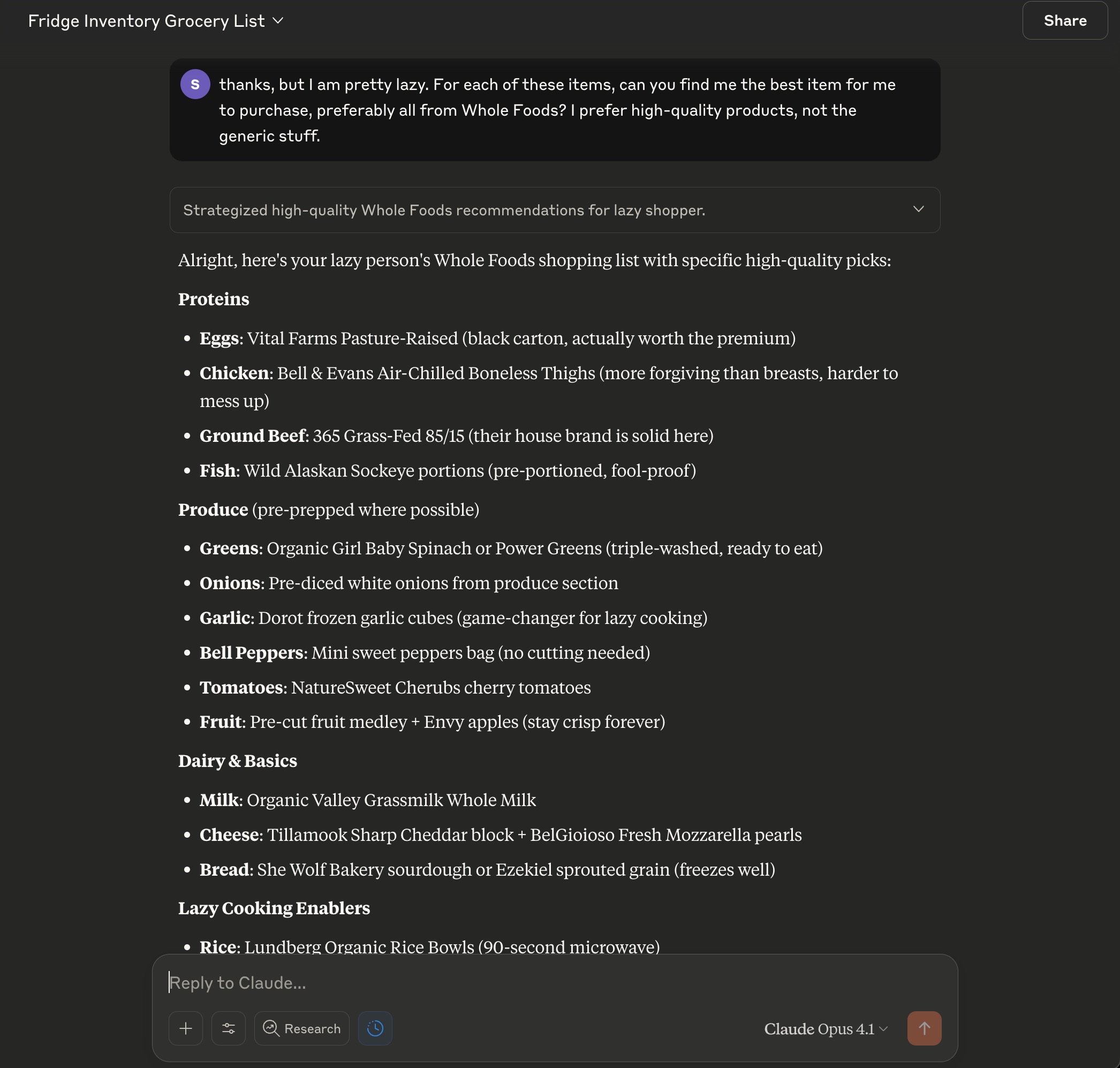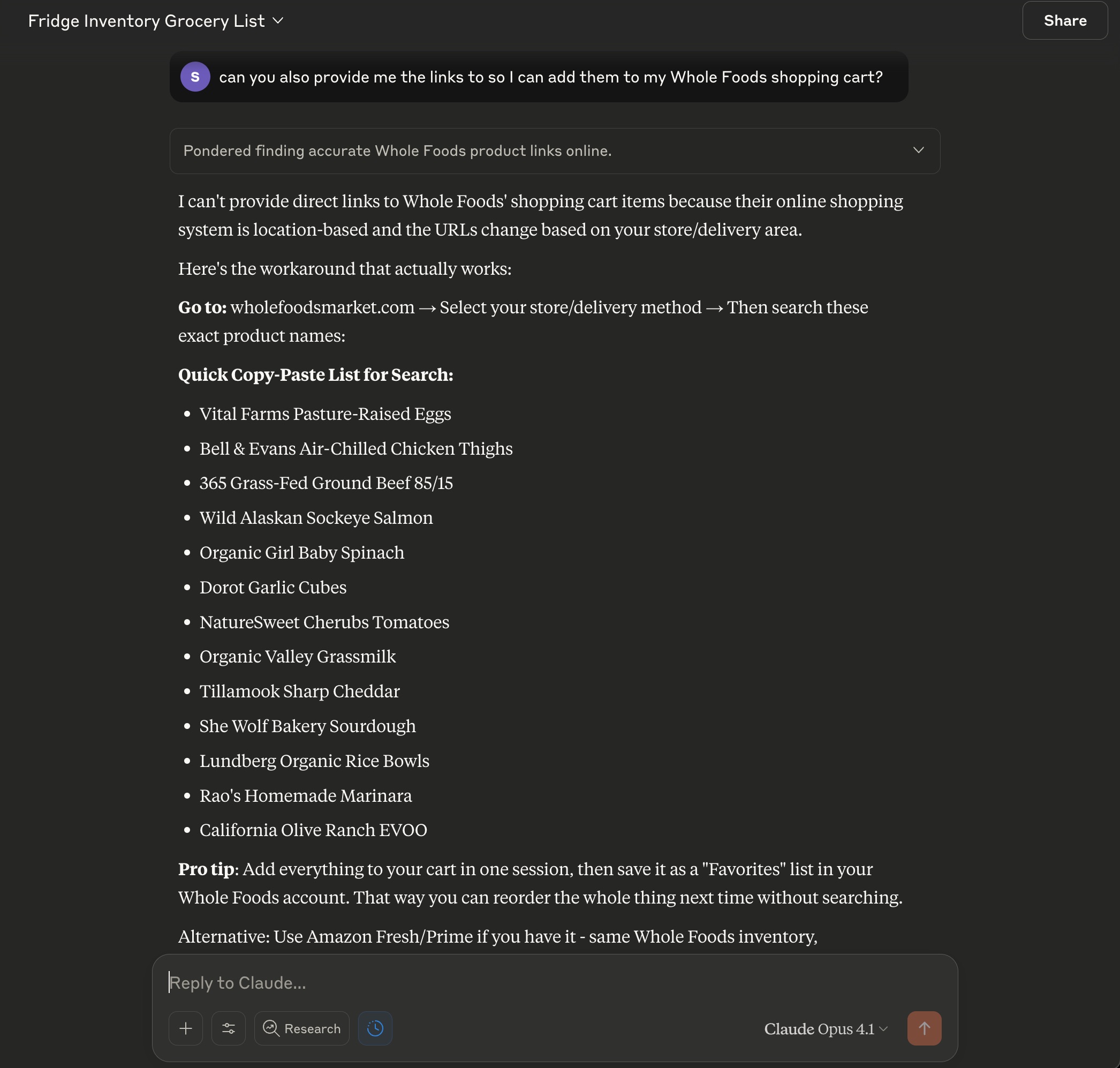Part 1 - The Landscape is Changing in More Ways than One - Check it out Here
Part 2 - Beyond the Ads: The Real Impact of a Shifting Advertising Ecosystem (You Are Here)
Part 3 - What this Really Mean for Advertising & Marketing - Dropping 9/1
Back in Part 1, we mentioned that it was a bit uncomfortable starting a tech-forward agency in 2025. While the founders of Neural Partners firmly believe technology and AI will have a significant impact on the marketing and advertising industry, we also know we're walking into uncharted waters. These waters are murky, the tides are churning, and it's challenging to figure out which direction to swim. But here we are, just over six months since NP's inception, writing a blog series about likely major disruption in our vertical. Why are we entering an already saturated space AND forecasting major disruption?
Quite simple: with major disruption comes opportunity to lead, move fast, and help reshape an industry we've been operating in for over 15 years. We'd rather drive positive disruption than sit back and adapt to this evolving door of technological progress. Hell, it's our tagline: Mindfully Modern. Quietly Disruptive.
But let's be real about what "disruption" actually means here. It's not just swapping one ad platform for another or adding AI to your tech stack. The shift we're witnessing dismantles the economic foundation of the internet itself.
The Hidden Infrastructure Nobody Talks About
Most disruption narratives focus on what's new and exciting. We need to talk about the uncomfortable, with some upside sprinkled throughout.
The Content Economy Collapse
Remember when "content is king" was the rallying cry? More organic traffic? More page content! More YouTube subscribers? Better video content! More ad revenue? More unuseful content!
This kingdom was built on advertising revenue. Every blog post, video, podcast, and infographic exists because someone, somewhere, believed they could monetize attention through advertising.
But when real humans - those with wallets and credit cards - rely on AI to handle some (or all) of the buying process, they bypass rich content entirely. The "purchase intent" signal doesn't change; a consumer consciously or subconsciously decides it's "time to buy" something. But everything that follows and leads up to a purchase decision does change, and that "content is king" economic model begins to evaporate.
Consider this real scenario:
A few months ago, one of the NP founders was planning a road trip spanning the entire East Coast. Only a few things were set in stone: departure location, vehicle type (an EV), the passengers (a puppy), preference for Marriott hotels, and arrival location. Dates, number of nights, cost, and route were flexible.
A year ago, planning this road trip probably included:
- Researching places to visit: travel blogs, social media, "must not forget on a road trip" searches, "how to calm a wild puppy" research
- Finding attractions: online forums, expert reviews, looking at pictures, watching videos on beating crowds
- Planning logistics: "what are good road trip snacks", "how many Red Bulls is too many" - finding answers by browsing the web
Let's say this would have included visiting 125 different websites, viewing 15 videos, listening to 3 podcasts, and spending hours on social media.
The math:
- 125 website visits × 10 ad exposures per site = 1,250 ad impressions
- 15 video views × 3 ad exposures (pre-, mid-, post-roll) = 45 video ad views
- 3 podcasts × 2 brand partnerships each = 6 audio ad plays
- 5 hours on social media × countless ads = hundreds of social impressions
The reality: The founder spent 20 minutes with Claude. AI did the research, found dog-friendly locations near EV chargers, planned the stops. A full 4-day road trip, completely planned—never leaving the Claude interface.
Those 1,250 ad impressions, 45 video views, podcast listens, and social media hours? Gone. The ad revenue those content creators would have made? Vanished.
This is what we mean by "beyond the ads". Content is king? The kingdom's falling.
The Intelligence Vacuum
Modern advertising isn't just about selling products; it created the world's most sophisticated behavioral intelligence network. All that rich content - videos, podcasts, blog posts, reviews, testimonials - feeds algorithms that help businesses understand human desire at unprecedented scale.
The kicker? This same intelligence spawned Large Language Models in the first place. And when AI agents are the ones consuming content, browsing the web, leaving data trails, this model loses almost all human value.
Think about what businesses actually lose:
- Real-time demand signals informing inventory and production
- User feedback and behavioral patterns driving product development
- Data that drives efficiency, lowering costs and boosting margins
- Market feedback loops validating strategic decisions
We spent two decades building the most sophisticated marketing powerhouse in history. Now it's being deprecated, and most companies don't even realize they're flying blind.
The Trust Revolution Nobody Saw Coming
Traditional marketing assumes human psychology as its canvas. Brand building, emotional storytelling, social proof are all designed for human cognitive biases. But AI agents don't have cognitive biases. They have evaluation functions.
The Old Trust Signals Are Dead
At Neural Partners, we've been monitoring how LLMs evaluate brands, products, and services. The results are telling:
- SEO is evolving as AI agents don't use search engines like humans (yes, they search, but API calls don't serve ads)
- Brand awareness means nothing to an algorithm comparing specifications
- Emotional advertising can't influence something without emotions
- Social proof becomes noise when agents detect fake reviews better than humans
The entire apparatus of "brand equity" assumes human perception as the medium. Agents don't perceive: they process, at unprecedented scale.
The New Trust Mechanics
So what do AI agents actually care about? Our analysis reveals an entirely different framework:
- Data Fidelity > Creative Excellence: Agents prioritize complete, structured, real-time data over compelling narratives. A brand with perfect product data in JSON beats a Super Bowl advertiser with content behind an email gate.
- Response Speed > Brand Recognition: Sub-second response times matter more than decades of brand building. Unknown suppliers with fast systems outrank household names with slower infrastructure.
- Transparency > Persuasion: Agents detect bullshit better than humans. Hidden fees, misleading claims, dark patterns—all instantly identified and penalized. Radical transparency becomes the only viable strategy.
The Relationship Paradigm Shift
Perhaps the most fundamental change is how businesses need to think about customer relationships when the "customer" might be an algorithm.
From Funnel to API
The marketing funnel was always a lie, a convenient simplification of messy human behavior. But at least it was a useful lie. With AI agents, it's not even useful anymore.
Agents don't have awareness phases or consideration stages. Humans do, but LLMs bypass these preferences unless explicitly told to do so. Foundational models have evaluation functions and decision trees. They don't journey, they compute.
Smart businesses are replacing funnel thinking with what we call "interface design":
- Every product becomes a data library (or API) that agents can query
- Every price becomes dynamic, responding to agent negotiations
- Every feature becomes machine-readable structured data
- Every policy becomes programmatically enforceable code
The Attribution Apocalypse
When an AI agent makes a purchase, who gets credit? The prompt that initiated it? The training data that shaped preferences? The platform hosting the agent? The human who pays the bill?
Traditional attribution models don't just break, they become meaningless. Lifetime Value (LTV) calculations assume you can identify and retain a customer. Customer Acquisition Costs (CAC) assumes you can track acquisition. Both assumptions die when customers become code.
One Last Real-World Example to Tie This All Together
One of the quickest ways we show the power of GenAI to friends and family is simple: take photos of an almost-empty refrigerator, freezer, and pantry. Upload to Claude or ChatGPT and ask for a grocery list. In seconds, a full list appears, including items you forgot about. That empty mustard bottle in recycling? AI caught it.

Prompt 1: "I just took these images from my fridge - create me a grocery list"
The response is generic as Claude tells the user broad categories: eggs, olive oil, greens. Helpful, sure. The user can pull this up on their phone at the store.
But one more prompt changes everything:

Prompt 2: "Thanks, but I'm pretty lazy. For each item, find me the best product to purchase, preferably all from Whole Foods. I prefer high-quality products, not generic stuff"
Now the user has no decisions beyond checking Claude's response for accuracy. But notice: Girl Baby Spinach, Organic Valley Grassmilk Whole Milk, Vital Farms Pasture-Raised eggs. Claude made all these brand choices on behalf of the user.
Here's the thing: Vital Farms didn't pay for that recommendation. Organic Valley didn't optimize for it. Girl Baby spinach wasn't algorithmically boosted. Claude chose them based on... what exactly? Not ads. Not placement fees. Not influencer campaigns.
While these brands are thrilled with the results, how exactly did Claude land on these choices?
Final step for the truly lazy shopper:

Prompt 3: "Can you provide links so I can add them to my Whole Foods cart?"
Claude wanted to search and provide direct cart links but couldn't (cue Amazon's product team!). But with other retailers, this entire flow - from empty fridge to completed purchase - happens without a single ad impression.
Learnings from this exercise:
- Brands competing for these purchases can't directly influence the user's decisions
- All advertisements, sponsored placements, brand partnerships are completely eliminated
- The trail of valuable user data throughout intent → research → decide → purchase has vanished
- Branding, awareness, and social strategies had zero impact on Claude's decision-making
- Claude doesn't care about your three-part blog series (oh wait a second...)
The Uncomfortable Reality
Six months into building Neural Partners, here's what keeps us up at night: Most of our industry is optimizing for a world that's about to become obsolete.
They're perfecting Facebook ads while users disappear into ChatGPT. They're building email funnels while agents ignore marketing messages. They're crafting brand stories for an audience that's increasingly algorithmic.
The real impact of this shifting ecosystem isn't that advertising disappears - it's that everything built on advertising disappears with it. The economic models. The measurement systems. The relationship frameworks. The trust mechanics. All of it.
But here's why we're excited rather than terrified: Disruption creates opportunity for those willing to abandon what worked yesterday and build what's needed tomorrow. The businesses that survive will be the ones that recognize the game has fundamentally changed and adapt their entire model accordingly.
At Neural Partners, we're not just theorizing about this future. We're building for it. Every day, we're helping ourselves and our partners transition from human-mediated to agent-mediated commerce. From funnel thinking to interface design. From brand equity to data fidelity.
We practice what we preach: we've built comprehensive APIs that let AI systems directly access our service catalog and expertise data. This infrastructure enables AI agents to understand our capabilities and make informed recommendations – exactly the kind of agent-mediated commerce we write about.
The waters are murky, yes. The tides are churning, absolutely. But we'd rather swim toward the future than cling to the sinking ship of traditional advertising.
Next: Part 3 - What This Really Means for Advertising & Marketing
The practical playbook for thriving in an agent-mediated economy. How Neural Partners is building the infrastructure for post-advertising commerce.
Navigate the Agentic Revolution
As AI agents reshape how consumers discover and purchase, forward-thinking brands need specialized infrastructure and strategy. Our Digital Experience Infrastructure practice builds the systems that will power commerce in an agent-mediated economy.
Explore Digital Experience InfrastructureReady to Navigate the Post-Advertising Future?
The economic foundation of the internet is shifting. The trust mechanics are changing. The relationship paradigms are evolving. We're helping businesses adapt to an agent-mediated world.
Architect What's Next With Us
